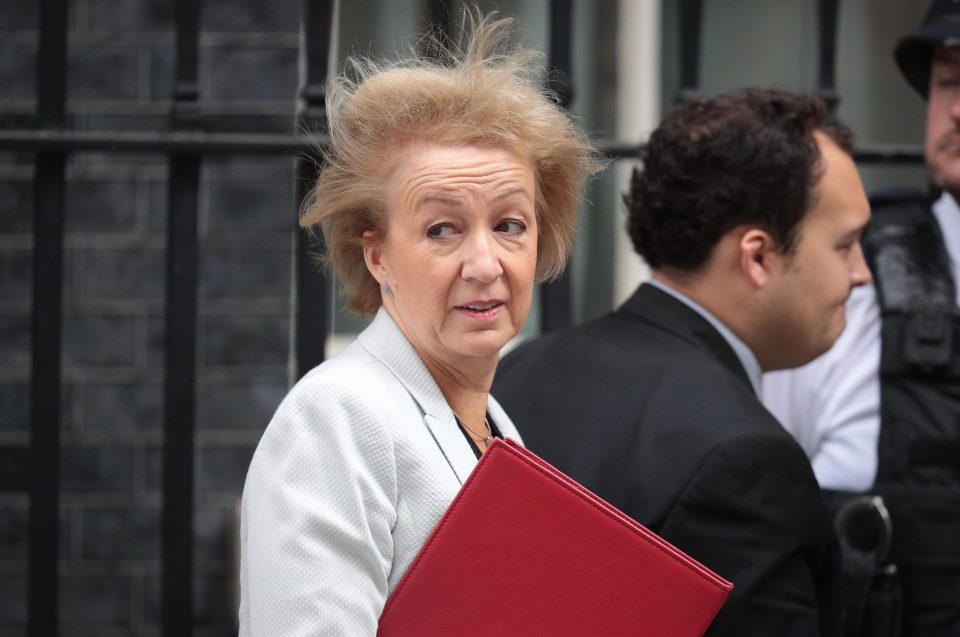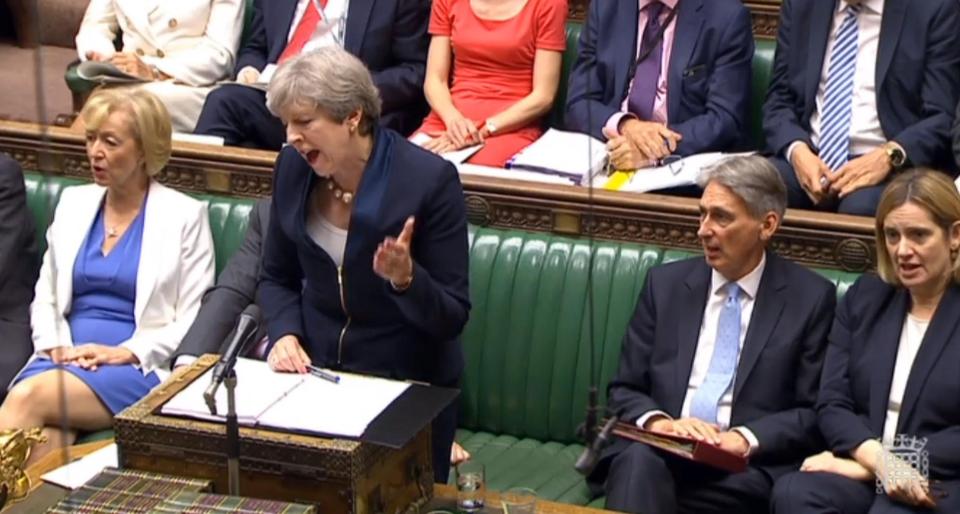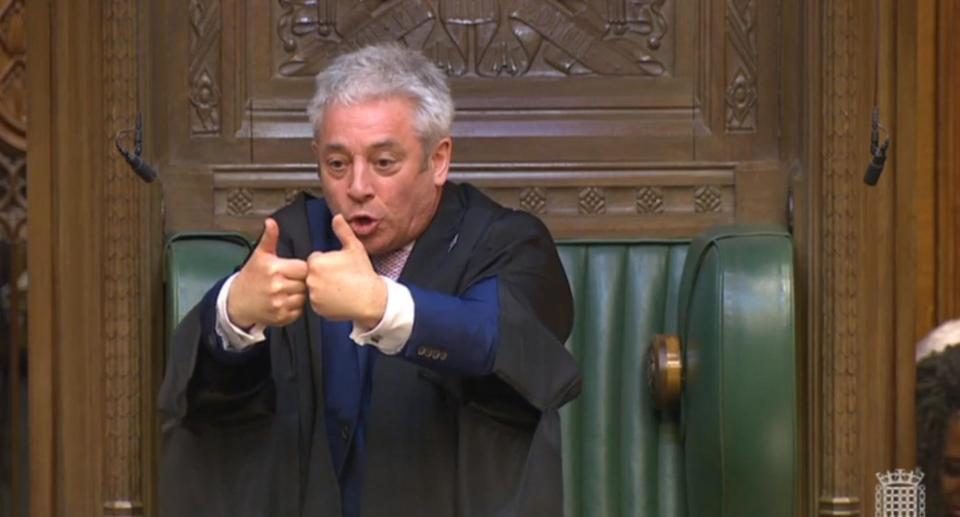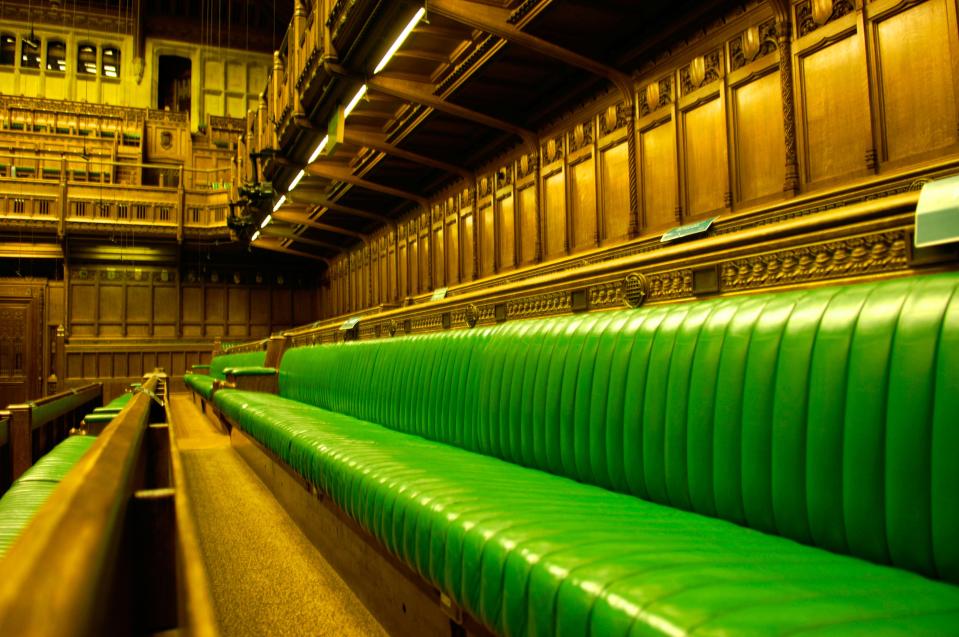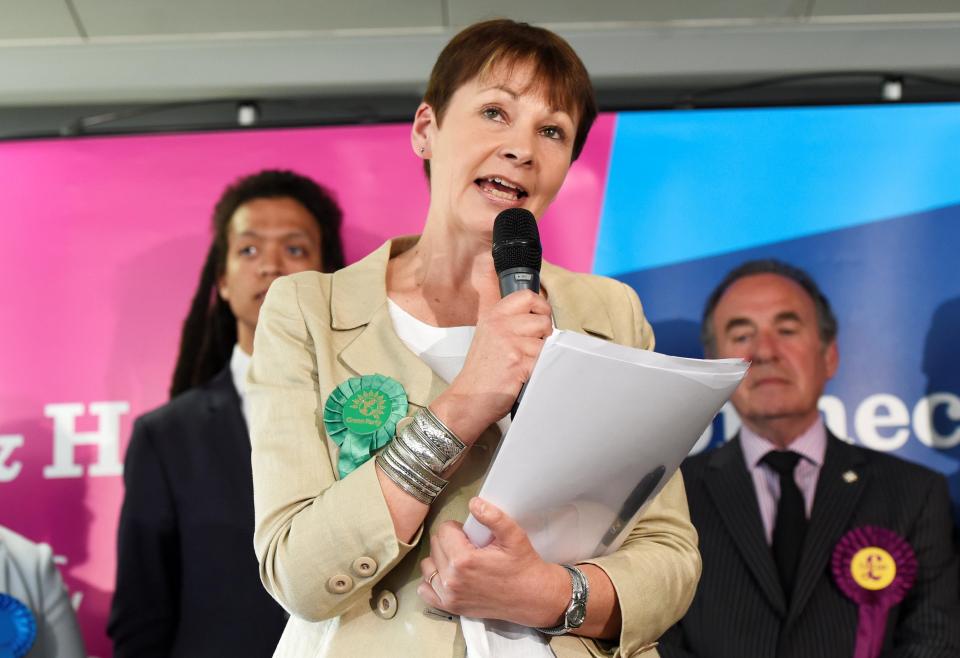Commons Leader Andrea Leadsom risks backlash with plans to hide names of MPs probed for misconduct
Members will be asked to approve Parliament’s new code of conduct that waters down current rules that states MPs investigated by the Commons watchdog must be named

COMMONS Leader Andrea Leadsom has risked a furious backlash tomorrow over plans to keep secret the names of MPs under investigation for misconduct.
MPs will be asked to approve Parliament’s new code of conduct for bullying and sexual harassment complaints - drawn up in the wake of the Westminster sex scandal last year.
But the plans water down current transparency rules that require any MP being probed by the Commons watchdog to be named.
It means MPs’ names will be hidden - even for investigations into offences unrelated to bullying or sexual harassment such as breaking expenses rules.
The plans sparked a furious reaction from the Standards Committee, which said they risk “rolling back a key element of openness in the existing system”.
The Sun can reveal that Ms Leadsom admitted in private that she had to offer anonymity to win support for the code of conduct from backbench Tory MPs.
A Commons insider said: “This is the stuff they had to offer to get the 1922 committee to sign up to the scheme.”
Ms Leadsom’s new grievance policy also faced a backlash over the decision not to apply the new code of conduct to allegations dating before last year’s General Election.
But she announced that a separate six-month inquiry will address misbehaviour before June 2017.
It means former staff members who accused Commons Speaker John Bercow of bullying will have their complaints heard by the authorities.
Two of his former private secretaries have gone public with bombshell claims that he physically intimidated them.
But the six-month separate inquiry will not have the powers to investigate complaints or issue sanctions.
Under the new complaints and grievances scheme, drawn up following a rash of bullying allegations, MPs and peers could face recall or expulsion from the Commons for the most serious breaches of the new behaviour code.
Less serious complaints could result in a requirement to issue a written apology, attend training courses or sign a behaviour contract.
It is expected that MPs will endorse the new system in a vote in the Commons tomorow.
Ms Leadsom said: “It is vital that all those who engage with Parliament, whether working or visiting, are treated with dignity and respect. These changes will help transform the culture in Parliament.”
Steering group member Caroline Lucas said: “Westminster is the first Parliament anywhere in the world to tackle bullying, harassment and sexual harassment so comprehensively, and a huge amount of progress has been made towards making it a safer, more respectful and equal environment.
“There’s still more to do, especially with regard to making the final stages of the new system more independent, promoting long-term cultural change and delivering justice for some historic cases, but we’ve taken the all-important first steps and, crucially, built in from the outset mechanisms to ensure this is the start rather than the end of an ongoing process.”
MOST READ IN POLITICS
Georgina Kester, who represented the Members’ and Peers’ Staff Association (MAPSA) on the steering group, described the new plan as “a robust and progressive way forward to deal with the problems that MPs’ and peers’ staff have had to face for far too long”.
Ms Kester said: “We hope that everyone both on the parliamentary estate and in constituency offices will now fully engage with the new processes and that the bullying and harassment that we have seen will be eradicated to provide a safe and confident place for all staff to work.”


